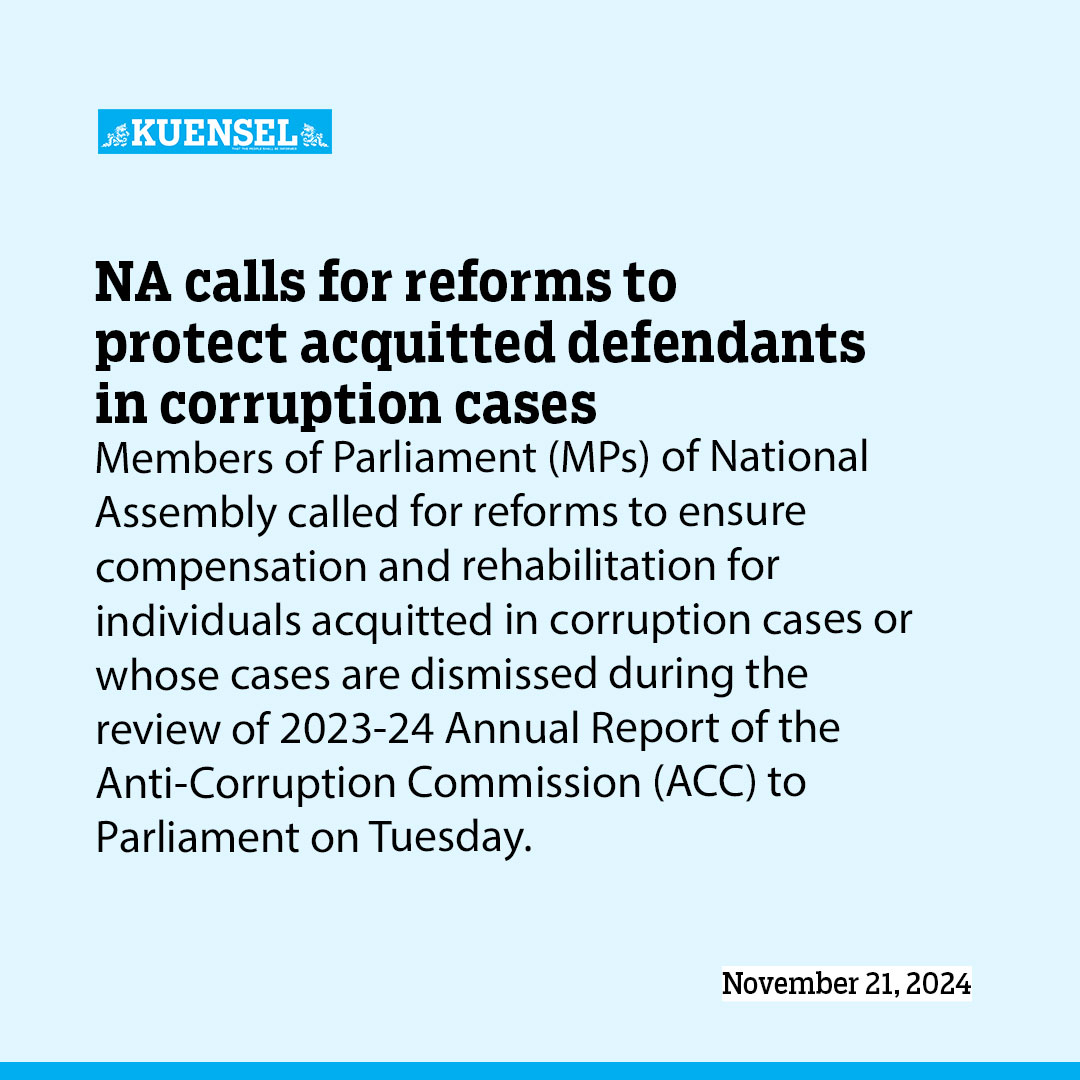Dechen Dolkar
Members of Parliament (MPs) of National Assembly called for reforms to ensure compensation and rehabilitation for individuals acquitted in corruption cases or whose cases are dismissed during the review of 2023-24 Annual Report of the Anti-Corruption Commission (ACC) to Parliament on Tuesday.
The chairperson of the Good Governance Committee, Lhakpa Tshering Tamang, presented the report.
The ACC report revealed that in 2023-2024 fiscal year, 101 defendants were charged with corruption, with 87 convicted, six acquitted, and eight cases deferred.
The Deputy Speaker Sangay Khandu highlighted the pressing need for reforms to protect those who are acquitted, as they often face interrogations, detentions, and suspensions without any compensation or legal recourse. “This gap is not reflected in the law, but it should be addressed,” he said.
Thrimshing-Kangpara MP Damche Tenzin said that it is important to put in place measures for individuals found innocent, who often face mental and societal challenges. “When someone is acquitted, their rehabilitation and protection should be prioritised,” he said.
The House recommended that the Good Governance Committee submit a report in the next session addressing compensation and rehabilitation measures for individuals acquitted or whose cases are dismissed by the courts.
The National Assembly also called for an expansion of online services to streamline processes, reduce corruption risks, and improve service delivery transparency.
The House recommended the National Assembly to discuss with the National Council to establish a joint parliamentary committee to review ACC’s annual report and the National Integrity Assessment Reports.
Additionally, the Good Governance Committee was tasked with compiling a comprehensive report on corruption-related judgments, restitution efforts, and asset recovery to be presented in the next session.
The Committee recommended conducting more public education and awareness programmes to promote transparency and integrity, as well as allocating sufficient budget and human resources to the ACC. The success of anti-corruption efforts, the Committee noted, relies on strong political will and adequate resources.
To curb electoral corruption, the Committee proposed collaboration between the ACC and the Election Commission of Bhutan to facilitate polling at residents’ places of residence, with facilitation booths in every Dzongkhag for national elections and by-elections.
The House also recommended greater empowerment of law enforcement and regulatory agencies as gatekeepers of integrity, alongside enhanced accountability and oversight mechanisms to prevent corruption in revenue mobilization.
The ACC report also raised key concerns over limited funding, staff shortages, and high attrition rates within the ACC, all of which hinder the Commission’s effectiveness. Within just six months, the ACC lost 18 employees, resulting in a staggering attrition rate of 17.9 percent, the highest recorded to date. The ACC currently has 141 employees.
The House endorsed all the recommendations, with 38 votes in favor, two abstentions, and one against, out of 41 members present and voting.


